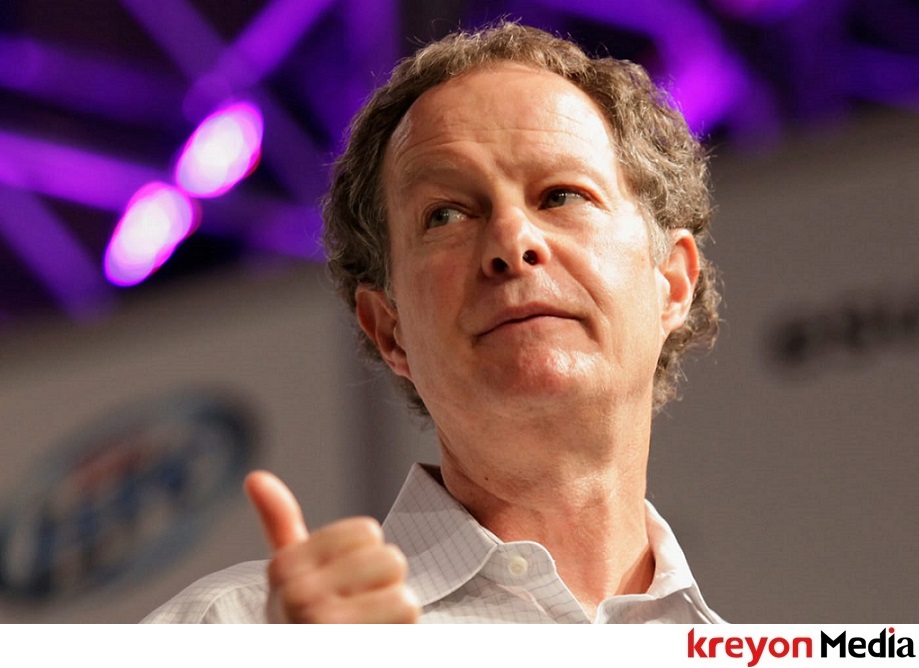
Whole Foods CEO John Mackey, just revealed his mantra for dealing with employee morale. He has been at the forefront of building a successful brand. He has spent over four decades in making Whole Foods, one of the most valuable food brands in the world. From the early days in 1978, when he founded the company by raising $45,000 from friends and family to selling the network of grocery stores to Amazon for $13.7 in 2017, he has seen it all.
John Mackey is very sensitive to the needs of his employees. He understands that it takes great communication skills to nurture your team and help them grow in their careers. As a boss, you need to know that your employees hang on to each word you utter. You may not know it, but they are mindful of every word you speak.
Criticism Vs Praise
John describes his experience when visiting a store on Freakonomics Radio, “I can give 10 compliments, but the one criticism devastates the morale.”
People are very sensitive to what their leaders have to say. So, communication needs careful consideration, else it can demotivate and demoralize the team.

Mackey has the distinction of building a supermarket chain that employs more than 90,000 employees and operates in over 500 locations. He says, “Because I am the founder, the CEO, I have a larger-than-life impact on the team members. They want ‘daddy’ to really love the store, and they don’t want criticism.”
He understands that it is hard for people to take criticism, especially, when you’ve not established trust with them. When times are turbulent, people are more susceptible to emotions & it could easily have a counterintuitive effect.
Establishing Trust
Mackey further elaborates his point, “In my experience, criticism will only be received by people if there’s a high degree of trust. If there’s trust, and people know that you care about them, then their self-esteem is less threatened. Because self-esteem is not usually very high with most people, you have to be very sensitive to the criticisms.”
While feedback is important, how you deliver the right inputs matter a lot. Employees are generally vulnerable, when there is critical feedback from the top leader. So, what is the solution? Mackey reveals his approach & says, “I know this. So, what I do is I give nothing but praise when I’m in the store.”
But is everything always rosy? Not quite, then how do you let people know when something is wrong. As a leader, it is your responsibility to find out things that need improvement, point out areas where the team is doing things wrong and let them correct things. Mackay uses an effective strategy for this, “If I see some problems, I might tell the store team leader, kind of one on one. But I try to not offer criticisms when I’m there, because they’re just too powerful, ” says Mackey.
When Mackey is touring a store, he insists on making positive remarks and catching people doing the right things. He reserves his critical feedback for one to one meetings with store leaders. A very pragmatic approach that has helped him build his supermarket chain.

“Trust is a fundamental factor in how employees receive feedback,” as per M. Tamra Chandler, an author & researcher into employee performance. It corroborates the point John Mackay made about feedback.
People are fearful and apprehensive of the feedback. Chandler says, “It is very physical, the reaction that people have to feedback.”
The amount of trust that employees have in their leaders affects their level of fear. When the employees have a strong trust, they’re more open and receptive to feedback. But when they don’t trust their leader, they are fearful & their performance also decreases.
Positive Interactions
When employees and leaders have positive interactions, it builds trust between them. These interactions help build rapport with your team. It puts them at ease, helps them to understand your viewpoint & connect with you as a leader.
Mackey says about his interactions with employees, “they don’t know me well enough to know they can trust me.” It takes time for leaders to win trust of their employees, Mackey says, “it is a long process. So, we should be very judicious in our criticism.”
Mackey recommends using positive interactions by catching people doing the right things. He says, “So, I definitely believe in positive reinforcement. And then if you do enough positive reinforcement, people are going to be in a place where they can receive the critical feedback. That gives you permission to give negative feedback. That’s actionable. So, we just need to be careful about it. And if you can’t do it, you’re going to be the type of leader that people avoid.”

Leaders need to be very careful that their teammates don’t develop apathy towards them. When strong relationships are built and trust is established, it gives freedom to leaders to communicate openly with their teams. Whole Foods CEO John Mackey shows why empathy & emotional intelligence is important for leaders. It helps them establish trust and rapport to build winning teams.







